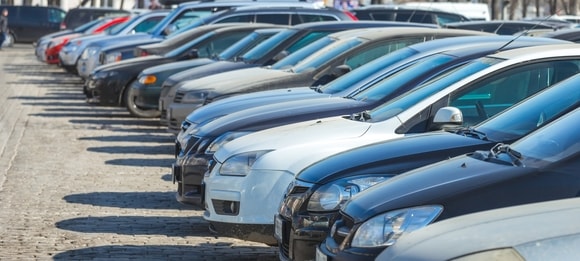
In recent years, annual car buying hit an all-time high at more than 40 million sold in a year. With these kinds of numbers, it's clear that there are some savings to be had on buying a used car over a new car. However, not everyone realizes that there are other costs associated with buying used cars that are hidden under the hood.
If you're asking "how much does a used car cost," we've got some answers to help you make a true calculation.
Do You Track Your Spending As of Now?
Most people don't track their day to day spending regularly. If you were asked for $200 for one coffee that lasted you all month on the first day of a new month, you'd laugh. However, if you actually track what you spend, you might be surprised to find that you spend even more than that!
When it comes to your car, you notice the big expenditures but you might forget about the small stuff. Affording a car isn't within everyone's budget, at least without the help of a credit card. The costs can quickly add up and get out of control.
It costs the average car owner around $1,200 a year just to maintain a car, but it could quickly add up to three times that with gas, oil changes, and other uses. If you drive over a toll bridge every single day, your costs will be even higher.
Remember that a trade-in can save you a little money right off the top.
Insurance Costs
Car insurance costs are one of the big x-factors when it comes to buying a car. Buying a used car often lets you spend less when it comes to your insurance coverage, but there are plenty of other ways to save as well.
If you're a younger driver, you might pay more. Typically young men pay more than older women.
It also depends on the kind of car you drive. If you have a cool used sports car, it's going to cost you more than a minivan to drive a family around in. There are assumptions about how you might drive depending on the kind of car you choose.
If you're a younger driver, try to get added to a family policy. If you're looking at a sports car, ask around about which one would be cheapest to insure.
Watch Out For Fines
Owning a car is a great way to get taxed and fined by your local enforcement body. Whether you have a car parked on the street, in a garage, or on a school campus, everyone has rules for you to follow.
The state will want you to put a new sticker on your license plate every so often. Most states require you to get a safety and emission test done every couple of years. Failing to do this puts other drivers at risk and gives the state reason to ticket you.
If you park on the street and forget to pay the meter, you could be doling out much more than pocket change. Some college campuses take it upon themselves to put a boot on your car so you can't drive off. You have to pay massive fines for this.
Cities will also boot serial offenders who don't pay their parking or speeding tickets. Drive safely and carefully or you could rack up all kinds of fines.
How About the Weather?
Depending on where you live, the weather could chip away at your car faster than normal wear and tear. While desert and dry areas have their problems, cold-weather regions can do the most damage to a car.
Rustproofing can help and should be part of your long-term strategy for owning your car. Take the time to deal with small rust spots before they become major. While finding parts for some domestic used cars can be easy, other models might be a challenge.
Also, make sure you're dealing with salt by washing your car off after any major storm and driving down salty roads. You might not think much of it but that salt will eat away at the undercarriage and cost you big time.
If you're buying a used car in a cold-weather region, make sure your mechanic looks underneath before you write a check.
Do Your Own Maintenance
While you might not think of yourself as very handy, doing a little maintenance on your own can save you big time. The little costs for having small issues dealt with will add up fast.
Rely on YouTube. There a tutorial for dealing with just about every issue with every make and model of a car. You could be changing your own lightbulbs, swapping out parts under the hood, and even changing your own oil.
Get comfortable with the parts for your car that you could be fixing and you could save a lot of money.
Make friends with people who like to work on cars and shadow them if you ask them for help. Ask them to show you how to do small repairs on your car. You could even spruce up old or damaged parts and make your car last longer than it would have otherwise. However, if you run into an issue that you cannot tackle yourself, give Serra’s service department a call.
Still Asking "How Much Does a Used Car Cost?"
There's no single answer to the question "how much does a used car cost" but there are some calculations to help you consider general costs. There are also some clever ways to save by choosing the right type of car, insuring under the right circumstances, and making sure you maintain it.
Check out our latest used inventory to start making a choice that makes sense for you.